Ode to April
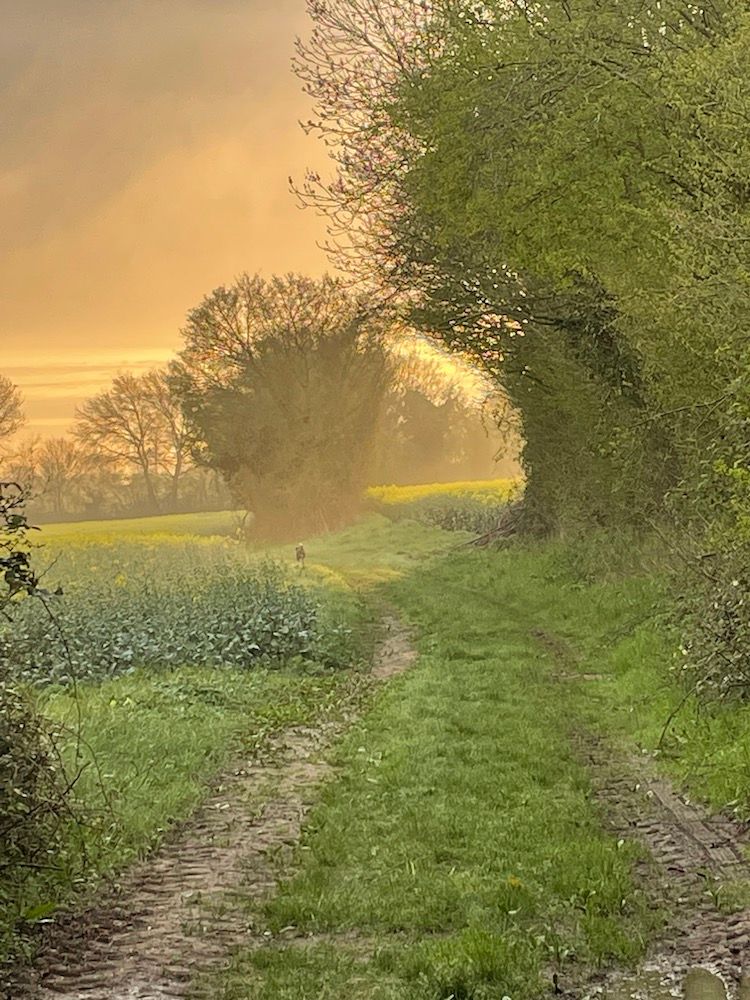
Friday, 21 April
“April is the cruellest month.”
What an overused way to start a piece of writing concerning the fourth month of the year. Worse, it is often misused, thus spoiling all the irony that TS Eliot infused into the first line of his 1922 poem The Waste Land.
With every misreading, I itch to set the record straight: the poet calls April cruel not because of some ugly twist of fate or, more mundanely, because the weather has been terrible, but because “Winter kept us warm, covering/Earth in forgetful snow.” It's the spring rain stirring us from our hibernal torpor that is brutal, the lilacs growing out of the dead land that is torture. Rebirth is painful.
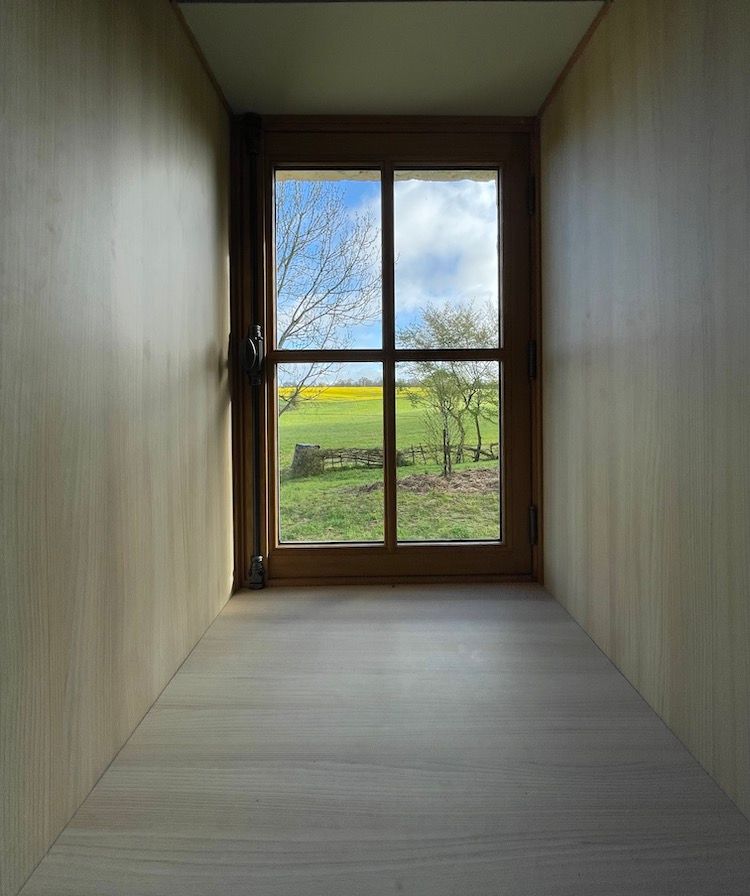
What an exquisitely fresh perspective, I thought, when I first read the poem at 19. Especially since subliminally I already knew what the poet meant. Even Monday mornings could nudge my dulled weekend roots uncomfortably, and some years spring did indeed seem a rude awakening.
But not this April, Mr Eliot. The rebirth of the world around me has been as glorious and inspiring as the photos above and below I hope convey.
After a wet March, it has kept raining. Nights and mornings have been cold but not frosty, meaning there is hope our plum, pear and quince trees will bear fruit this year.
The sun has shone too, casting a gentle dawn light over the fields of harvested winter wheat...
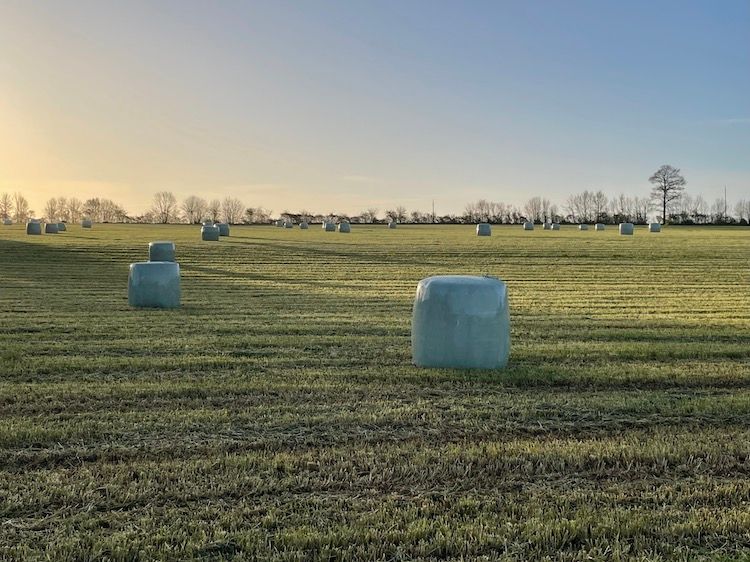
...and yielding shockingly blue skies at dusk.
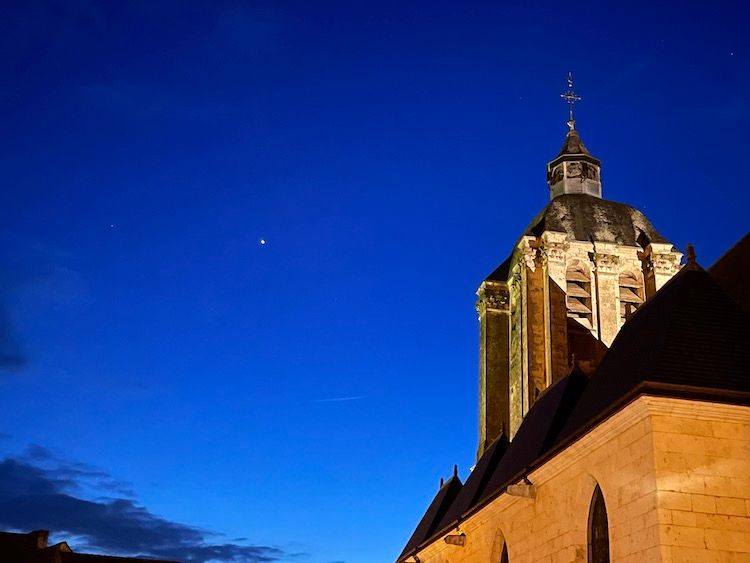
April this year has in fact outdone herself. Thanks to climate change, nature's spring treats have been compacted. The summer wheat, for example, is already a thick, earnest green that quivers nervously or ripples like silk, depending on the level of wind (which at times has been scarily fierce).
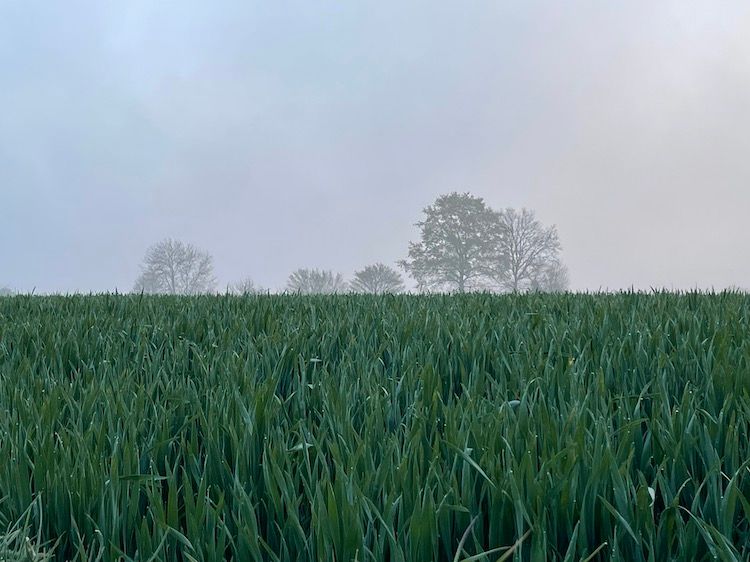
The colza that once upon a time flowered in late May is in full bloom. Its luminous yellow and balmy scent embody that mix of memory and desire TSE associates with the cruellest month. Even knowing that the neighbouring farmer has packed the crop with chemicals, who could not but be gay in such a jocund company (to pinch words from another poet about another yellow flower)?
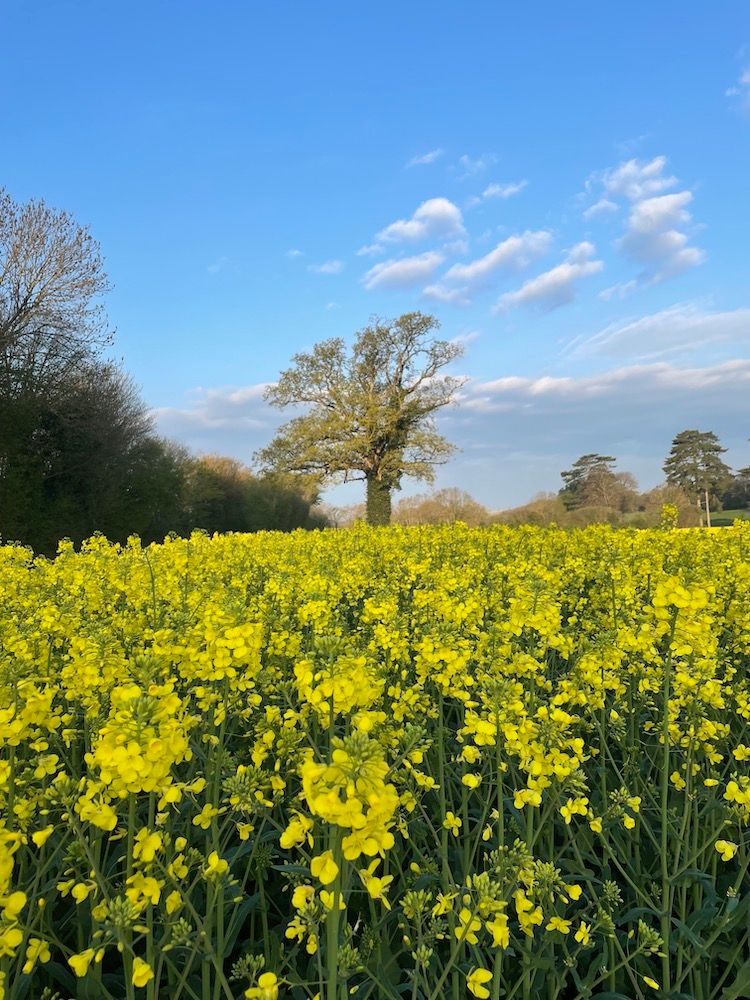
This year's ebullience is also due to the improved state of our own garden. Last April it was an arid expanse of concrete and gravel, the levelled landscape broken by the odd pile of sand and rubble, an overturned wheelbarrow (stony rubbish, per TSE).
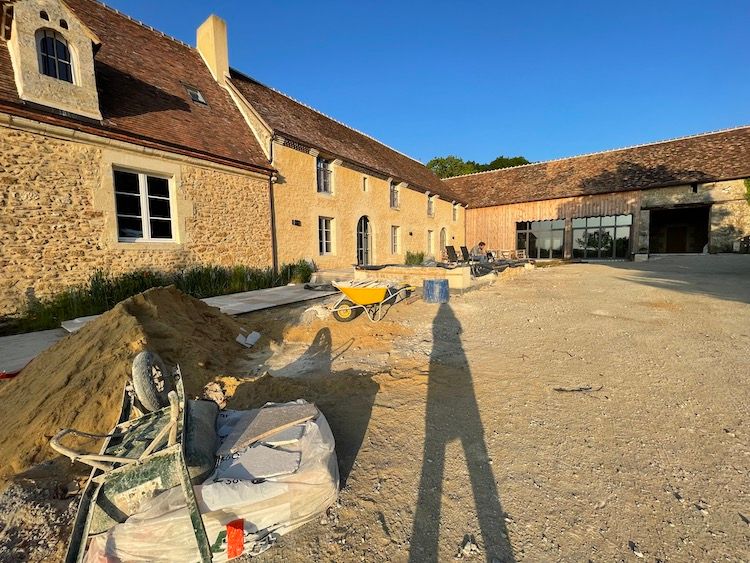
Last summer new contours were shaped and some plants planted. Then the weeds took over, but since February, Claire and Company - with some intermittent help from David and me - have been very busy...
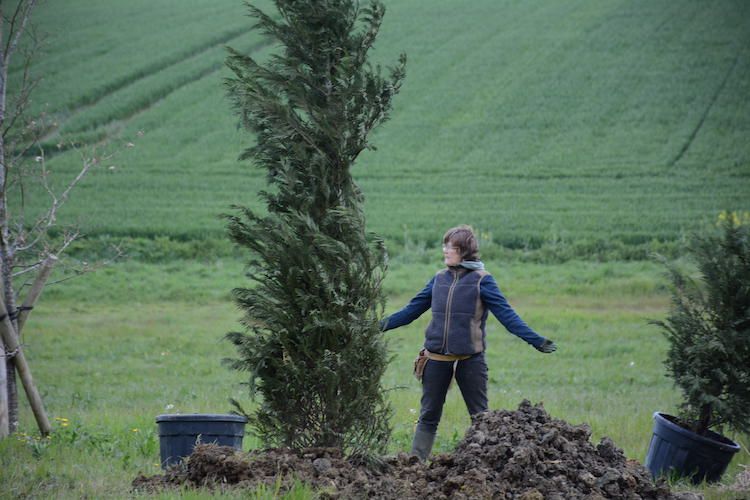
...weeding, trimming and providing more vegetal housing.
Nature too has been busy. What was planted last year is bursting back to life.
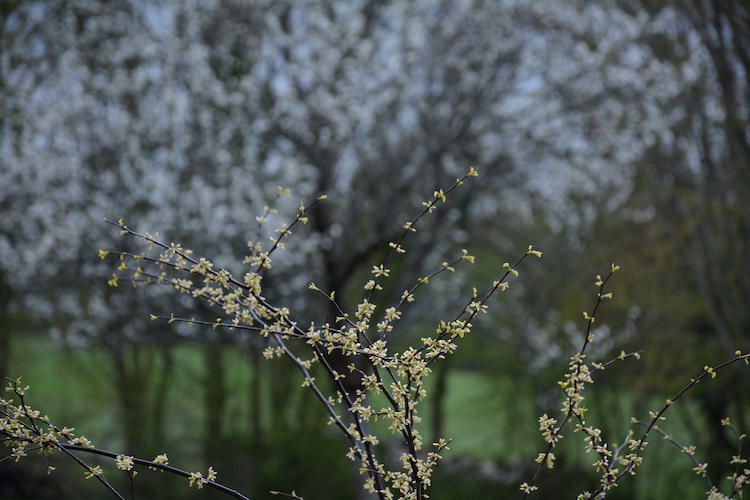
For protection, wood chips have been scattered (and rescattered) to help the plants until they can join leaves against the weeds. With all the rain, you can practically see progress from one day to the next.
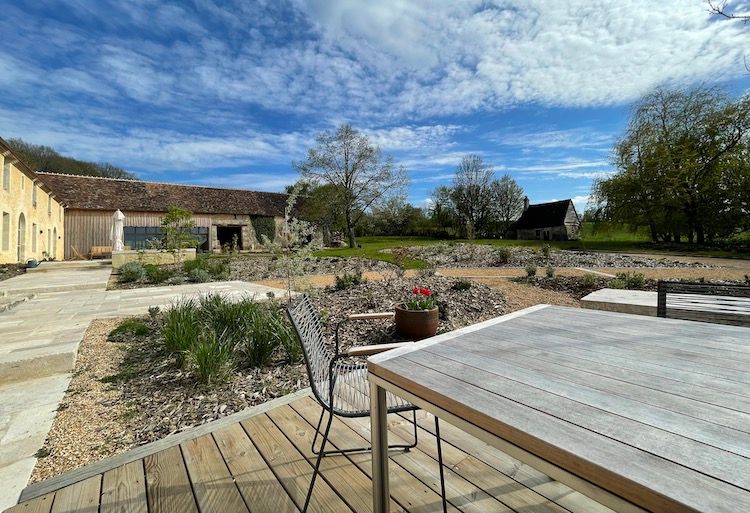
Later in the poem Eliot talks of the dry grass singing; the dry stone and no sound of rain; dry sterile thunder without rain. The Waste Land is after all a post-World War I poem of desolation. Yet eerily, much of the scary scenario he intoned a hundred years ago is easy enough to imagine in the here and now, should we have yet another drought-stricken summer.

But for the moment, cruel April is pure joy.
_____________
You can visit my website here and follow me on my Instagram here